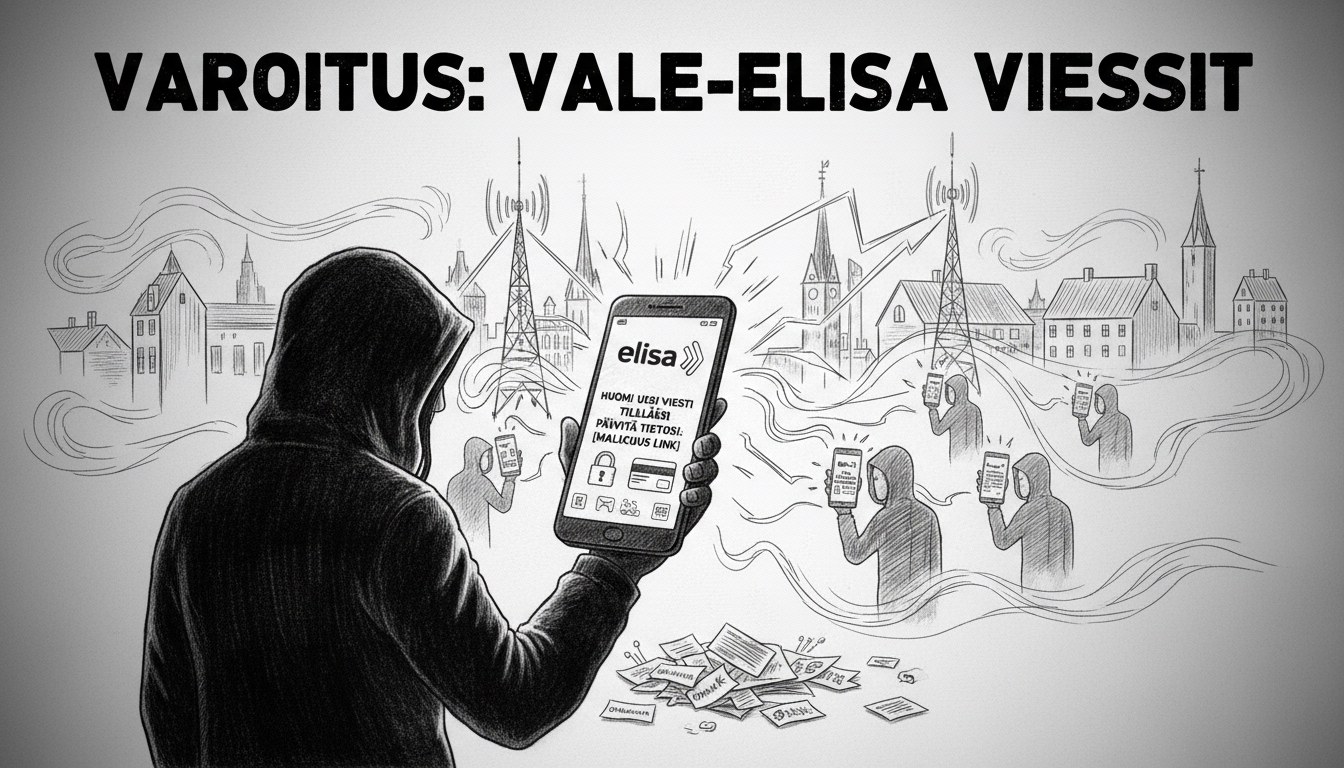Finnish authorities warn about fraudulent text messages circulating under telecom operator names. These scam messages typically urge recipients to complete security updates or verify customer information. The Finnish Direct Marketing Association reports that Elisa's name appears frequently in these sophisticated phishing attempts.
Scammers replicate Elisa's visual branding with alarming accuracy. They create convincing fake messages that mirror the company's official communications. The fraudsters often pressure victims with urgency tactics, demanding immediate action to prevent account suspension or security breaches.
Arto Isokoski, founder of the Finnish Direct Marketing Association, explained the pattern in a statement. He noted that when scammers target a specific company, they typically do so intensively for a period. This concentrated attack on Elisa-branded messaging follows that established pattern.
Beyond the Elisa impersonations, authorities express particular concern about scams using the Omakanta name. Omakanta serves as Finland's national digital identification platform. Citizens inherently trust this official service name. Fraudulent Omakanta messages might prompt users to update health information through provided links, creating serious privacy risks.
Recent scam messages show creative variations in content. Some claim the recipient's email appeared in hacker databases and offer compensation through worldwide refund programs. Others impersonate banks, Posti delivery service, DocuSign, and MobilePay payment platform.
The content of these fraudulent communications spans service updates, payment requests, and package tracking alerts. The Finnish Direct Marketing Association's Kilpi app also reports increasing numbers of disruptive messages advertising online games and adult content.
Finland's Kilpi application provides crucial protection against these threats. The service automatically blocks unwanted calls, texts, and emails. It identifies phishing attempts and prevents identity theft. When users report scam messages through Kilpi, the system blocks those senders for all other users too.
The application also filters harmful text messages and reduces spam volume. Users can establish marketing bans through the platform. Kilpi remains available for download through Apple's App Store and Google's Play Store for Android devices.
This wave of telecom impersonation scams reflects broader digital security challenges facing Nordic countries. Finland's high internet penetration rate and widespread digital service adoption make its population particularly vulnerable to sophisticated phishing campaigns. The country's advanced digital infrastructure paradoxically creates more opportunities for fraudsters exploiting public trust in established brands.
Nordic consumers generally exhibit high trust in official institutions and corporate communications. Scammers leverage this cultural tendency when crafting convincing fake messages. The current situation demonstrates how digital security threats continuously evolve to exploit changing communication patterns and consumer behaviors.

